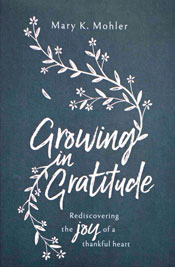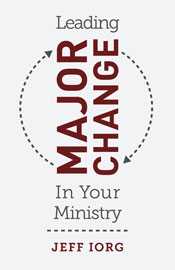Ronnie Floyd: ‘Living Fit’
All areas of life—spiritual, physical, emotional, financial and relational—are connected, Ronnie Floyd, former president of the Southern Baptist Convention who now leads the National Day of Prayer Task Force, writes in a new book.
In “Living Fit: Making Your Life Count by Pursuing a Healthy You,” Floyd aims to help readers “live in the highest way for our Lord and for others.”

“Life is not a dress rehearsal. We have one shot with our life. Living Fit prepares and equips people to make their lives count,” said Floyd, senior pastor of Cross Church in northwest Arkansas.
“I hope readers grow to understanding God wants to use them in a great way to live out God’s purpose in their life,” he said. “The healthier they are personally, the greater the impact will be in their life.”
Within the five areas of life, Floyd has observed that Christians generally neglect the physical aspect of healthy living. “People know the other areas are important, but living fit physically seems to be dismissed or ranked lower in the order of priorities,” he said.
“I cannot add days to my life but I can add value to the days I have when I am living fit physically. A person is not able to go places and do things their body is unable to take them.”
Floyd also observes that most Christians live as though their spiritual lives are disconnected from the other areas of life.
The typical Christ follower will check his or her spiritual life gauge, he said, and if it is pointing toward health, they assume their entire life is healthy. Yet, the reality is, life does not work that way; it is not just one part but many parts of a whole.
“There is a deep hunger in the lives of people to live holistically,” Floyd said. “They just may not know how to do it or believe they can do so.”
Mary Mohler: ‘Growing in Gratitude’
Gratitude is a deeply theological issue, Mary Mohler writes in “Growing in Gratitude: Rediscovering the Joy of a Thankful Heart.”
Mohler, wife of Southern Seminary President Albert Mohler Jr., noted in an interview, “We cultivate gratitude by understanding that it’s so much more than counting our blessings.

In Scripture, we’re told so many times to praise the Lord, to be thankful, in all circumstances not for all circumstances. We’re supposed to be abounding with thanksgiving, so I take that very seriously.”
Understanding that kind of gratitude requires understanding Scripture, Mohler writes. From the garden of Eden to salvation, she relays the role gratitude plays in Scripture and in the lives of Christians. Scripture helps increase gratitude in many ways, Mohler writes, recommending praying through the Psalms, which “can do nothing but increase our gratitude.”
Gratitude is having an awe of God, a constant awareness of who He is, who He reveals Himself to be in Scripture, Mohler writes, calling Christians to gratitude in good times and hard times. A “natural gratitude,” she explains, is a gratitude for gifts from the Lord. A “gracious gratitude” is a gratitude simply for who God is. Both are necessary.
“It’s much easier to be grateful when things are going well, but we have to work hard to remain grateful when life hurts,” she said. “It seems almost foolish to thank God when things are hard. But I think that’s biblical too.”
A heart of gratitude can easily be hindered by hardship, Mohler acknowledged. Christians can be distracted and distraught over the lostness of friends, by busyness, by discontentment, and by doubt and guilt. In all of these circumstances, it is easy to lose sight of the truth, to be robbed of any hint of thankfulness, she said.
Jeff Iorg: ‘Leading Major Change in Your Ministry’
Jeff Iorg knows a thing or two about leading a ministry through major change.
As president of Gateway Seminary, Iorg was responsible for relocating the 70-year-old institution—along with its employees and students—to a new location 400 miles away. He shares the account of the relocation and other stories of successful change in his book, “Leading Major Change in Your Ministry.”

Faced with a deteriorating campus and up against stiff community opposition to redevelopment, Iorg made the difficult decision to transition the former Golden Gate Seminary from Mill Valley, Calif., to its new campus in Ontario, Calif. The move, completed in 2016, involved creating a fresh organizational structure, forming a new compensation strategy, upgrading technology and renaming the seminary.
Iorg presents a model for how such decisions should be approached. He draws insight not only from the seminary relocation but also from his time as a pastor, as a church planter and as executive director of the Northwest Baptist Convention.
“Decisions about major change require thoughtful, prayerful, courageous leadership,” Iorg writes. “Leaders need more than an intuitive feeling, an experienced hunch, or a moving emotional moment to solidify a decision to lead a major change.
“My hope is these leadership experiences, along with the work done by so many colleagues in various ministry organizations, will be instructive,” he writes.
While Iorg’s book provides pragmatic advice for how ministry leaders can “get the job done” when enacting change, it also emphasizes the ultimate goal of glorifying God.
“God is glorified when a major change is worthy of being done in his name,” Iorg concludes. “Grand projects that require sacrificial effort and result in people becoming Christians, churches being started or enlarged, human needs being met, or holy causes advanced are worthy of God’s name.”
Chuck Kelley: ‘Fuel the Fire’
Baptisms in the Southern Baptist Convention have been in decline for 16 years. To change that, Chuck Kelley hopes to start a conversation.
“The Southern Baptist Convention is facing the greatest evangelism crisis in its history, with an unprecedented gap between the number of churches and the number of baptisms those churches record,” said Kelley, president of New Orleans Seminary.

A new book by Kelley, “Fuel the Fire: Lessons from the History of Southern Baptist Evangelism,” examines the causes behind the longest running decline in baptisms in SBC history and what can be done to reverse it.
“Southern Baptist churches are not reaching their communities with the Gospel,” he said in an interview, “nor are they reaching the children of the congregation.”
Fuel the Fire is not filled with “data charts and footnotes,” Kelley notes. Rather, it’s a book written for every Baptist. “The puzzle to be solved is the future, but perhaps some clues on how to solve that puzzle can be found in understanding our past,” Kelley writes.
“Clearly the SBC is a convention in decline,” Kelley said. “Clearly the severity of the decline in baptisms is … something we have never seen before.”
Rekindling the fires of evangelism, Kelley writes, will require a focus on prayer, setting goals for evangelism, and helping members share testimonies and explain the Gospel.
Telling others about Christ is something every believer, every Baptist can do, Kelley insists, citing 2 Timothy 4:5 to show that now is the time.
“The bottom line is simple. Get started. Do something. Get engaged yourself in sharing the Gospel with the lost in your community, and help others learn to share the Gospel with them,” Kelley writes in his conclusion. “There will never be a better time than now.”
Jason Allen: ‘Being a Christian’
Jesus came “for more than behavior modification,” Jason Allen noted upon the release of his book “Being a Christian.”
“As we apply the Gospel to every area of our lives, the life of Christ pulsates through us,” Allen, president of Midwestern Seminary, said in an interview. “We live a more joy-filled, satisfied life … (when) we experience the joy and wholeness that only Christ can give.”
In Being a Christian, Allen addresses multiple areas in a Christian’s life that intersect with the Gospel, from dealing with one’s past to how the Gospel affects marriage, family, work, recreation and church life.

“When I came to Christ as an 18-year-old college student, I expected something of a change,” Allen recounted, “but what I had in mind was more like behavior modification than spiritual transformation. I knew Jesus died to redeem me but didn’t quite understand He’d died to redeem all of me.
“My ambitions, lifestyle choices, convictions became—and are becoming—shaped by Christ. He transformed me from the inside out, and He continues to do so. Jesus redeemed all of me.”
Allen said the primary audience for Being a Christian is people who have embraced Jesus Christ as their Savior since “you will not be able to live the Christian life unless you are a Christian. It is not until you are a Christian that the life of Christ is in you. The Gospel is the door that leads one to life in Christ, the Christian life.”
Yet those who are inquiring about the Christian life also can benefit from the book, Allen said. The secret to the Christian life, he said, is that there really is no secret. It is simply loving and intentionally living for Jesus.